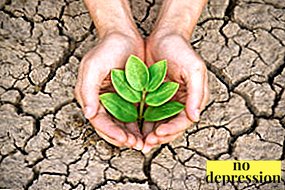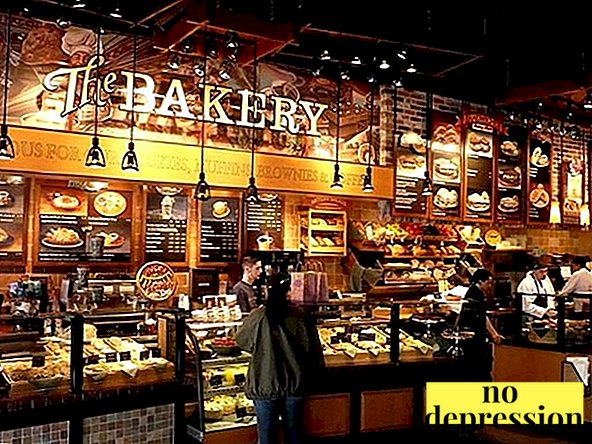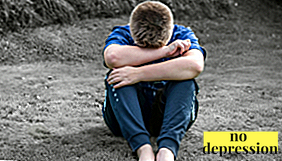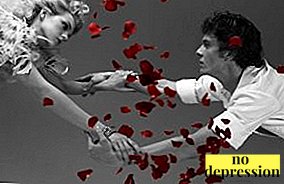The concept of morality is constantly on the ear and is measure of the level of development of modern man.
Thanks to the correct moral orientation, people manage to successfully exist in the conditions of society.
Definition in psychology

Moral - it is an individual for each individual individual set of rules and a set of ideals, which together form the moral quality of a person.
These rules affect the choice of a person, his behavior and attitude to the world around him.
Morality is considered in conjunction with concepts about ethics and morals.
Landmark, position, principles
Moral landmark - these are goals and prohibitions (existing in consciousness) that a person uses as a model for building a line of conduct.
Those. moral reference is a clear framework, beyond which a person does not allow himself to go.
Moral position - This is an assessment of the norms of social behavior and their compliance. A person passes this assessment through an internal “filter”, realizing it and taking it as a guideline for his own actions. Moral position includes:
- behavioral motives;
- self-regulation and control of their own actions;
- conscientiousness;
- a sense of human dignity (from the position of a person who has chosen a certain moral position for himself).

Moral principles - This is the framework on which to build social and interpersonal relationships.
At the same time, it is fair to assert that moral principles are universal, support social foundations through an external influence mechanism (public approval or censure of behavior patterns), can be expressed in moral norms.
Human Qualities: List
Morality and morality intersect, forming a unified quality system. This category includes the moral unit:
- love for people;
- respect for others;
- dedication (loyalty);
- disinterested beginning (motivation to action, due to good intentions, and not the potential benefit);
- spirituality (combination of morality and religiosity).
AND moral block:
- call of Duty;
- a responsibility;
- honour;
- conscience;
- the pursuit of justice;
- dignity.

In addition to positive moral and moral qualities there are negative: anger, envy, deceit, etc.
If the level of morality in society is low, over time, negative actions and qualities become acceptable and preferable for society, and then inspired by younger generations as the current norm.
Substitution of concepts It happens very quickly and you can track the dynamics even by the example of children and their parents.
Positive moral quality is recognized as such at the level of whole communities. And such universal qualities act as a guarantee that their owner will be identified as a moral and educated person.
Most highly valued in modern society responsibility, humanity, openness, sincerity, discipline, loyalty, collectivism, tact, diligence, diligence, cleanliness.
High moral qualities are those qualities that are in the “positive” pole in a given society / culture.
But in some cases "High" they name those qualities that are dictated not so much by the need to successfully integrate into society, as by the deep and sincere feelings of an individual. This category includes patriotism, chastity, absolute humanism.
Examples of feelings

A person experiences moral feelings at the moment when he realizes how much his actions meet or do not meet moral standards.
And if the analysis of the committed actions confirms that the requirements of society and morality were taken into account, the individual will experience positive feelings.
In case the behavior goes against the universally approved models, the feelings will be negative and destructive.
Examples:
- A person who has rudely responded to an elderly person in a queue condemns himself and has unpleasant feelings. At the time of the unsightly act, the hero went on about his own irritability.
But at the same time, a person considers respect for elders as a mandatory item in the system of moral guidelines.
- The traveler, returning to his homeland, is aware of the depth of his patriotism. At this moment, he feels positive feelings, which takes the form of pride in fellow countrymen, love for his native land and respect for the country.
- The girl is waiting for her beloved from the army. Realizing that her behavior corresponds to the highest moral guidelines (loyalty and devotion), the heroine experiences positive emotions.
Behavior

The behavior becomes moral in the case when the individual binds him to the existing system of moral values and tries to sum up his actions to positive landmarks.
The key element of moral behavior is deed.
The act in turn is in action and can receive a positive or negative assessment of members of society.
Abstaining from any actions at the moment when morality requires activity from a person, can also be regarded as an act.
Moral behavior is difficult to assess objectively, but others always pass other people's actions through "Filter factors":
- motives (if a noble motive led to the unsightly result of a person, the degree of public indignation will decrease);
- the result of the action;
- objective reality (the circumstances in which the act was committed);
- means of achieving the goal (a person can use "forbidden techniques" on the way to a good goal, which will seriously overshadow his moral character).
Moral behavior is always an attempt to find a balance between the limitations established by society (frameworks) and one’s own freedom (creative choice).
What are the rules?

Moral norms can be represented in the form of a scale with two poles, one of which displays encouraging behaviors, and the other is deprecated.
Moral norms can be divided into two types: the permissible and the unacceptable (of good and evil).
The concepts are opposite and mutually exclusive, which means each norm has its own antipode.
This forces a person to take a stable position, since it is impossible to maintain neutrality in polarity conditions (unless inaction is not a conscious choice of a person who is ready to be condemned by others).
What is an indicator of moral maturity?
Personality can be recognized morally mature only in case of successful socialization. Those. A mature person should learn the norms adopted in society and be guided by them when committing acts and making decisions.
But the desire to get closer to the ideals is not dictated by the fear of condemning society, but by the awareness of the value, correctness and justification of such behavior.
Relativism - what is it?

Moral Relativism - This is a position whose supporters deny the possibility of the existence of absolute evil or good.
According to moral (moral) relativism, morality is not tied to universal standards.
Ethical behavior - only a variable that changes as a result of a change of scenery (culture, participants in the action, nuances of the situation, etc.).
Relativism can be viewed in two ways:
- the concepts of "good" and "evil" are conditional in themselves;
- public morality is relative to unconditional standards of good and evil.
Briefly about the theory of the development of morality
How is morality formed in children? This question was asked by many scientists. But in the modern world, only Lawrence Kohlberg theory.
Kohlberg used the dilemma method. He projected on children situations in which the young participants in the experiment had to make difficult moral choices.
As a result, the idea that children form spontaneous morality, not tied to any figures and indicators, was rejected.
Kohlberg revealed three levels of moral consciousness development:
- Age from 4 to 10 years. This level was called “pre-moral”. In the period from four to ten years, the child at the center puts his own benefit and safety. At the first stage of development, he seeks approval in order to escape punishment. And the right tactics of behavior is easy to build with the help of clues (social norms). In the second stage, the child is already focused on the potential reward for good behavior. The kid does not think about punishment, but about profit.
- Age from 10 to 13 years. The level is called conventional. During this period, the child is already beginning to realize the rules and values adopted by society. In the first stage, the measure of moral success is people from close surroundings. Shame and unwillingness to disappoint reputable people pushes the rules. In the second stage, the child already understands the reasons for which restrictions were introduced. He also sees in them a way to defend and protect their own rights.
- Age after 13 years. The teenager creates his own system of moral values, adjusting the pattern adopted by society. At the first stage, a large amount of attention is paid to those norms that help to survive and remain calm in society. At the second stage, a person already has stable moral principles, which he adheres to despite external influence and circumstances.
If necessary, the person will be able to fight back and endure the disapproval of the crowd, if the behavior of the crowd seems unfair.

The problem of immorality

Why is there a decline in morality? All processes in society are cyclical.
Therefore, sooner or later morality goes into a state of decline.
Due to the ubiquitous broadcasting and propaganda of immoral personalities, people go on about this propaganda.
The image of a successful person who spits on morality and social foundations, following a dream and destroying stereotypes, emerges. All this is shrouded area of some romance that attracts the younger generation.
But minds that are easily influenced by others, unable to assess the scale of the disaster. Rejection of moral values is a direct path to anarchy and lawlessness.
After all, an immoral society is a society, each member of which is guided by its own egoism and comfort, without experiencing remorse at the moment of harm to its neighbor.
This is inevitably due to the blurring of the border between good and evil globally. There will be a gradual destruction of any absolute foundations.
It is very important to cultivate high moral qualities in children., to give the younger generation the opportunity to live life consciously. Then people will coexist peacefully, not because they were forced to do so, but of their own accord.
Why morality is needed:



